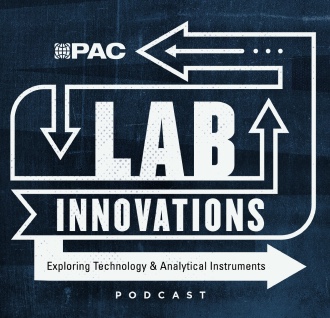-
Decarbonisation of steam crackers
Nov-2021
A number of technologies are available to reduce the CO2 emissions from steam crackers — from electrification and CCUS to electric furnaces.
-
Refinery decarbonisation. What, when, how, and at what cost?
Nov-2022
The refining industry’s resolve to reduce CO2 emissions continues despite the current surge in energy prices. In fact, some of the measures may have ...
-
Monitoring technology for ethylene crackers and SMRs
Jan-2022
Digital solutions and infrared technologies help steam cracker and SMR operators improve temperature homogeneity and fuel efficiency.
-
New low carbon methanol production approach
Nov-2021
An innovative steam methane reformer-based methanol production process achieves significant reductions in atmospheric CO2 emissions.
-
Navigating environmental complexities at pace
Nov-2022
Revamping existing hydrogen plants can provide a significant and lasting impact on reducing greenhouse gas emissions towards net zero
-
Role of of CCS and hydrogen in decarbonisation (ERTC 2023)
Nov-2023
In the pursuit of global climate ambitions outlined in the Paris Agreement, the role of carbon capture and storage (CCS) and hydrogen technologies has ...
-
Leadership challenges in the energy transition (ERTC 2023)
Nov-2023
Amidst the dynamic canvas of the energy transition, the beacon of effective leadership shines ever brighter, illuminating the path through challenges toward ...
-
Crude-to-chemicals complex Transition to a net-zero future (RI 2023)
Nov-2023
In today’s world, the expanding chemical value chain requires superior processing flexibility to shift hydrocarbons from fuels to olefins and aromatics ...
-
Circular economy strategies for petrochemical sustainability
Nov-2023
Sustainability is a journey for the industry, not a destination, and the circular economy is one of the tools to make that journey possible.
-
Using water electrolysis to transform hydrogen production (RI 2023)
Nov-2023
There is a global trend toward producing clean hydrogen to achieve the ambitious net zero emissions target by 2050.
-
Scenario analysis for exploring pathways to decarbonisation (ERTC 2023)
Nov-2023
In 2021, world leaders gathered for COP26 in Glasgow to reaffirm the global commitment to achieve the goals of the Paris Agreement and limit global warming ...
-
Route towards sustainability CO2-derived bio-based polycarbonate (RI 2023)
Nov-2023
The continuous depletion of fossil-based feedstock and excessive emission of carbon dioxide (CO₂) has affected the ecological environment and become ...
-
Achieving end-of-life plastic circularity with a refinery unit (ERTC 2023)
Nov-2023
Every year, in Europe alone, roughly 30 million tonnes of plastic waste is collected. However, more than 80% of that resource is not recycled into new ...
-
Increasing chemicals by integrating refinery with petrochemicals (RI 2023)
Nov-2023
This article explores the integration of refineries with petrochemicals to increase chemical production.
-
Hybrid loading of regenerated and fresh catalyst to cut carbon footprint (RI 2023)
Nov-2023
Catalysts are typically one of the largest controllable costs for a refiner. Reusing properly regenerated catalysts avoids unnecessary spending and complements ...
-
A systems approach at work to solve electrification challenges at scale
Nov-2023
Industrial organisations can push decarbonisation forward by shifting process heater systems from fossil fuel-burning to electric. This kind of electrification ...
-
Improving plastic circularity by upgrading pyrolysis oil
Nov-2024
Our current use of plastics is ahead of our ability to handle waste plastic volumes. Only around 15% of plastics produced each year are recycled, with ...
-
Energy transition and circular economy facilitated by biomass and plastic waste gasification
Nov-2024
As the demand for lower-carbon and more circular products intensifies, more and more refiners and chemical manufacturers are evaluating the potential benefits ...
-
Diversification of feedstocks essential for sustainable aviation fuel production
Nov-2024
Relying on a single feedstock for sustainable aviation fuel (SAF) production is not a realistic option.
-
Carbon capture solutions to help meet net zero goal
Nov-2024
Action must be taken to address the climate crisis, and carbon capture is key to lowering emissions and driving business outcomes.
-
Sustainable biofuel production and the role of microalgae (RI 2024)
Sep-2024
Major fossil fuels such as coal, natural gas, and oil are depleting and emit high levels of CO₂ and nitrogen oxides when used for energy generation
-
Advancement of carbon capture technology for mass deployment (RI 2024)
Sep-2024
Technology Centre Mongstad (TCM) is an extensive and flexible test centre for developing CO₂ capture technologies and a competence centre for carbon ...
-
Creating a strong plastics recycling pathway to meet rising demand
Nov-2024
The rising demand for plastics presents two main challenges: the environmental impact of production and waste and the reliance on fossil resources.
-
Low-carbon SynCOR Ammonia process solution from Topsoe (NARTC 2025)
Feb-2025
Topsoe pioneered advanced autothermal reforming (ATR) during the 1990s and successfully commercialised plants operating at a low steam-to-carbon (S/C) ...
-
Reduce energy costs hydrocracking a wider variety of feedstocks (NARTC 2025)
Feb-2025
Refinery hydrocracking projects are expected to grow significantly through 2025, with worldwide capacity projected to reach almost 15 million bpd.
-
Decarbonisation of steam crackers
Nov-2021
A number of technologies are available to reduce the CO2 emissions from steam crackers — from electrification and CCUS to electric furnaces.
-
Leadership challenges in the energy transition (ERTC 2023)
Nov-2023
Amidst the dynamic canvas of the energy transition, the beacon of effective leadership shines ever brighter, illuminating the path through challenges toward ...
-
Circular economy strategies for petrochemical sustainability
Nov-2023
Sustainability is a journey for the industry, not a destination, and the circular economy is one of the tools to make that journey possible.
-
Monitoring technology for ethylene crackers and SMRs
Jan-2022
Digital solutions and infrared technologies help steam cracker and SMR operators improve temperature homogeneity and fuel efficiency.
-
Navigating environmental complexities at pace
Nov-2022
Revamping existing hydrogen plants can provide a significant and lasting impact on reducing greenhouse gas emissions towards net zero
-
Crude-to-chemicals complex Transition to a net-zero future (RI 2023)
Nov-2023
In today’s world, the expanding chemical value chain requires superior processing flexibility to shift hydrocarbons from fuels to olefins and aromatics ...
-
Sustainable biofuel production and the role of microalgae (RI 2024)
Sep-2024
Major fossil fuels such as coal, natural gas, and oil are depleting and emit high levels of CO₂ and nitrogen oxides when used for energy generation
-
Low-carbon SynCOR Ammonia process solution from Topsoe (NARTC 2025)
Feb-2025
Topsoe pioneered advanced autothermal reforming (ATR) during the 1990s and successfully commercialised plants operating at a low steam-to-carbon (S/C) ...
-
Achieving end-of-life plastic circularity with a refinery unit (ERTC 2023)
Nov-2023
Every year, in Europe alone, roughly 30 million tonnes of plastic waste is collected. However, more than 80% of that resource is not recycled into new ...
-
New low carbon methanol production approach
Nov-2021
An innovative steam methane reformer-based methanol production process achieves significant reductions in atmospheric CO2 emissions.
-
Scenario analysis for exploring pathways to decarbonisation (ERTC 2023)
Nov-2023
In 2021, world leaders gathered for COP26 in Glasgow to reaffirm the global commitment to achieve the goals of the Paris Agreement and limit global warming ...
-
Hybrid loading of regenerated and fresh catalyst to cut carbon footprint (RI 2023)
Nov-2023
Catalysts are typically one of the largest controllable costs for a refiner. Reusing properly regenerated catalysts avoids unnecessary spending and complements ...
-
Using water electrolysis to transform hydrogen production (RI 2023)
Nov-2023
There is a global trend toward producing clean hydrogen to achieve the ambitious net zero emissions target by 2050.
-
Route towards sustainability CO2-derived bio-based polycarbonate (RI 2023)
Nov-2023
The continuous depletion of fossil-based feedstock and excessive emission of carbon dioxide (CO₂) has affected the ecological environment and become ...
-
Increasing chemicals by integrating refinery with petrochemicals (RI 2023)
Nov-2023
This article explores the integration of refineries with petrochemicals to increase chemical production.
-
Taking the SAF route to aviation sustainability (RI 2024)
Sep-2024
Aviation accounts for 1.9% of overall greenhouse gas (GHG) emissions, making it an important pain point for policymakers and consumers alike in the drive ...
-
Cost-effective decarbonisation: Future-proofing Indian refineries (RI 2024)
Sep-2024
In the face of global climate change and increasing environmental regulations, Indian refineries must adopt innovative strategies to reduce carbon emissions ...
-
Oil refinery roadmap for decarbonisation of emissions (RI 2024)
Sep-2024
Achieving net-zero greenhouse gas (GHG) emissions is a critical goal for many industries worldwide, including the refining sector
-
Advancement of carbon capture technology for mass deployment (RI 2024)
Sep-2024
Technology Centre Mongstad (TCM) is an extensive and flexible test centre for developing CO₂ capture technologies and a competence centre for carbon ...
-
Refinery decarbonisation. What, when, how, and at what cost?
Nov-2022
The refining industry’s resolve to reduce CO2 emissions continues despite the current surge in energy prices. In fact, some of the measures may have ...
-
Role of of CCS and hydrogen in decarbonisation (ERTC 2023)
Nov-2023
In the pursuit of global climate ambitions outlined in the Paris Agreement, the role of carbon capture and storage (CCS) and hydrogen technologies has ...
-
Energy transition and circular economy facilitated by biomass and plastic waste gasification
Nov-2024
As the demand for lower-carbon and more circular products intensifies, more and more refiners and chemical manufacturers are evaluating the potential benefits ...
-
A systems approach at work to solve electrification challenges at scale
Nov-2023
Industrial organisations can push decarbonisation forward by shifting process heater systems from fossil fuel-burning to electric. This kind of electrification ...
-
Carbon capture solutions to help meet net zero goal
Nov-2024
Action must be taken to address the climate crisis, and carbon capture is key to lowering emissions and driving business outcomes.
-
Creating a strong plastics recycling pathway to meet rising demand
Nov-2024
The rising demand for plastics presents two main challenges: the environmental impact of production and waste and the reliance on fossil resources.
-
Reduce energy costs hydrocracking a wider variety of feedstocks (NARTC 2025)
Feb-2025
Refinery hydrocracking projects are expected to grow significantly through 2025, with worldwide capacity projected to reach almost 15 million bpd.
-
Low-carbon SynCOR Ammonia process solution from Topsoe (NARTC 2025)
Feb-2025
Topsoe pioneered advanced autothermal reforming (ATR) during the 1990s and successfully commercialised plants operating at a low steam-to-carbon (S/C) ...
-
Improving plastic circularity by upgrading pyrolysis oil
Nov-2024
Our current use of plastics is ahead of our ability to handle waste plastic volumes. Only around 15% of plastics produced each year are recycled, with ...
-
Energy transition and circular economy facilitated by biomass and plastic waste gasification
Nov-2024
As the demand for lower-carbon and more circular products intensifies, more and more refiners and chemical manufacturers are evaluating the potential benefits ...
-
Diversification of feedstocks essential for sustainable aviation fuel production
Nov-2024
Relying on a single feedstock for sustainable aviation fuel (SAF) production is not a realistic option.
-
Creating a strong plastics recycling pathway to meet rising demand
Nov-2024
The rising demand for plastics presents two main challenges: the environmental impact of production and waste and the reliance on fossil resources.
-
Carbon capture solutions to help meet net zero goal
Nov-2024
Action must be taken to address the climate crisis, and carbon capture is key to lowering emissions and driving business outcomes.
-
Taking the SAF route to aviation sustainability (RI 2024)
Sep-2024
Aviation accounts for 1.9% of overall greenhouse gas (GHG) emissions, making it an important pain point for policymakers and consumers alike in the drive ...
-
Sustainable biofuel production and the role of microalgae (RI 2024)
Sep-2024
Major fossil fuels such as coal, natural gas, and oil are depleting and emit high levels of CO₂ and nitrogen oxides when used for energy generation
-
Oil refinery roadmap for decarbonisation of emissions (RI 2024)
Sep-2024
Achieving net-zero greenhouse gas (GHG) emissions is a critical goal for many industries worldwide, including the refining sector
-
Cost-effective decarbonisation: Future-proofing Indian refineries (RI 2024)
Sep-2024
In the face of global climate change and increasing environmental regulations, Indian refineries must adopt innovative strategies to reduce carbon emissions ...
-
Advancement of carbon capture technology for mass deployment (RI 2024)
Sep-2024
Technology Centre Mongstad (TCM) is an extensive and flexible test centre for developing CO₂ capture technologies and a competence centre for carbon ...
-
Scenario analysis for exploring pathways to decarbonisation (ERTC 2023)
Nov-2023
In 2021, world leaders gathered for COP26 in Glasgow to reaffirm the global commitment to achieve the goals of the Paris Agreement and limit global warming ...
-
Role of of CCS and hydrogen in decarbonisation (ERTC 2023)
Nov-2023
In the pursuit of global climate ambitions outlined in the Paris Agreement, the role of carbon capture and storage (CCS) and hydrogen technologies has ...
-
Leadership challenges in the energy transition (ERTC 2023)
Nov-2023
Amidst the dynamic canvas of the energy transition, the beacon of effective leadership shines ever brighter, illuminating the path through challenges toward ...
-
Achieving end-of-life plastic circularity with a refinery unit (ERTC 2023)
Nov-2023
Every year, in Europe alone, roughly 30 million tonnes of plastic waste is collected. However, more than 80% of that resource is not recycled into new ...
-
Using water electrolysis to transform hydrogen production (RI 2023)
Nov-2023
There is a global trend toward producing clean hydrogen to achieve the ambitious net zero emissions target by 2050.
-
Route towards sustainability CO2-derived bio-based polycarbonate (RI 2023)
Nov-2023
The continuous depletion of fossil-based feedstock and excessive emission of carbon dioxide (CO₂) has affected the ecological environment and become ...
-
Increasing chemicals by integrating refinery with petrochemicals (RI 2023)
Nov-2023
This article explores the integration of refineries with petrochemicals to increase chemical production.
-
Hybrid loading of regenerated and fresh catalyst to cut carbon footprint (RI 2023)
Nov-2023
Catalysts are typically one of the largest controllable costs for a refiner. Reusing properly regenerated catalysts avoids unnecessary spending and complements ...
-
Crude-to-chemicals complex Transition to a net-zero future (RI 2023)
Nov-2023
In today’s world, the expanding chemical value chain requires superior processing flexibility to shift hydrocarbons from fuels to olefins and aromatics ...
-
A systems approach at work to solve electrification challenges at scale
Nov-2023
Industrial organisations can push decarbonisation forward by shifting process heater systems from fossil fuel-burning to electric. This kind of electrification ...
-
Circular economy strategies for petrochemical sustainability
Nov-2023
Sustainability is a journey for the industry, not a destination, and the circular economy is one of the tools to make that journey possible.
-
Refinery decarbonisation. What, when, how, and at what cost?
Nov-2022
The refining industry’s resolve to reduce CO2 emissions continues despite the current surge in energy prices. In fact, some of the measures may have ...
-
Navigating environmental complexities at pace
Nov-2022
Revamping existing hydrogen plants can provide a significant and lasting impact on reducing greenhouse gas emissions towards net zero

















